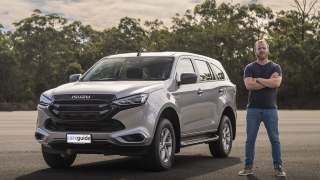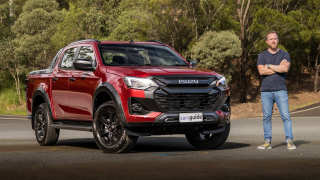FBT ploy bit back | comment

The Rudd Government’s changes to the Fringe Benefits Tax rules are so flawed it is difficult to know where to start. By increasing the tax on the personal use of company cars -- from the previous flat rate of 20 per cent to one requiring drivers to fill-out log books or risk being taxed 100 per cent -- the Rudd Government kicked one of the biggest own goals of this election campaign.
It immediately cost jobs, slowed new-car sales, put the brakes on a significant number of orders and deliveries, and threatened the survival of the already struggling car manufacturing industry. Not bad for a morning’s work.
The announcement was made without warning -- or consultation of the industry -- on July 16. The Rudd Government showed its ignorance of the FBT changes on the very first day when the Deputy Prime Minister Anthony Albanese told ABC Radio: “The chances are it’s not a Holden Commodore (driver rorting the current system) it’s a BMW (driver)”.
However Treasury has since been exposed for not having access to that level of detail. Disturbingly, this means the Rudd Government overturned the previous FBT rules -- which had been in place for 27 years and supported by successive Federal Governments from both sides of politics -- on a hunch.
Data from the biggest leasing firms in Australia show luxury cars such as BMWs, Audis and Mercedes-Benzes combined account for just 5 per cent of vehicles bought under a novated lease or salary-packaging deal. The average price of all cars bought under these arrangements is $34,900.
It became even more apparent that the Rudd Government didn’t do its homework when industry figures showed more than 80 per cent of drivers who buy cars under these arrangements are public sector workers.
A study of 100,000 novated leasing contracts by the Australian Salary Packaging Industry Association found State and Federal Government public servants represent the largest portion (33 per cent) ahead of those in charities and public health (28 per cent), police and teachers (21 per cent) and then the private sector (18 per cent).
As an example, one of Australia’s largest charities, the Salvation Army, says the new FBT rules will add $4 million to its tax bill each year -- equivalent to almost half the money raised by door-knockers in its annual Red Shield Appeal.
Then there is the catastrophic impact on locally-made cars, up to 70 per cent of which are bought under novated lease or salary-packaging deals. Ford announced 12 down days on its production line as demand for the Falcon fell off a cliff in the fortnight after the announcement.
Toyota, the biggest manufacturer of cars in Australia, also warned the FBT changes “would significantly affect … locally built vehicles which are heavily reliant on sales to business and government fleets”. Holden remained relatively quiet because it is in the middle of sensitive negotiations for further taxpayer support. But the boss of Holden Mike Devereux is said to be furious about the FBT changes.
Federal Industry Minister, Senator Kim Carr, came up with a $200 million rescue package for the local car makers -- Toyota, Holden and Ford -- without knowing how it would be implemented. Furthermore, a study by News Corp found the $200 million (about $3000 per car) wouldn’t go near covering the average $8400 increase in FBT.
In another example of the Rudd Government not thinking things through, the FBT changes will simply mean drivers will either keep their cars longer or buy new vehicles with a car allowance from their employer, thus avoiding the FBT hike.
This means the Rudd Government would not get the $1.8 billion it was banking on to help pay for abolishing the carbon tax -- and it would have to pay out more money to help prop-up local car makers. A month after the FBT changes were announced the Rudd Government announced a $2 billion assistance package to the car industry from 2016 to 2025 -- on top of the $200 million FBT patch-up.
Putting aside for a moment that Prime Minister Kevin Rudd would need to be re-elected twice for this to occur, the FBT overhaul made in a heartbeat now looks like costing the Rudd Government at least $2.2 billion rather than raising the $1.8 billion it had banked on. Oops.
FBT: What Labor will do
To distinguish between personal and work use of a car it will be compulsory for drivers of novated lease or salary package vehicles to fill out a logbook for three months that are “indicative” of the vehicle’s annual use. In practice this will mean the Fringe Benefits Tax will increase for most company-car drivers from the previous statutory method of 20 per cent to between 80 and 100 per cent.
FBT: What the Coalition will do
The Coalition has vowed to drop the changes to Fringe Benefits Tax proposed by the Rudd Government on July 16 and revert to the previous statutory method. The Coalition says it won’t need to increase taxpayer funding to the car industry because reverting to the previous FBT system will ensure new-car demand remains high.











Comments